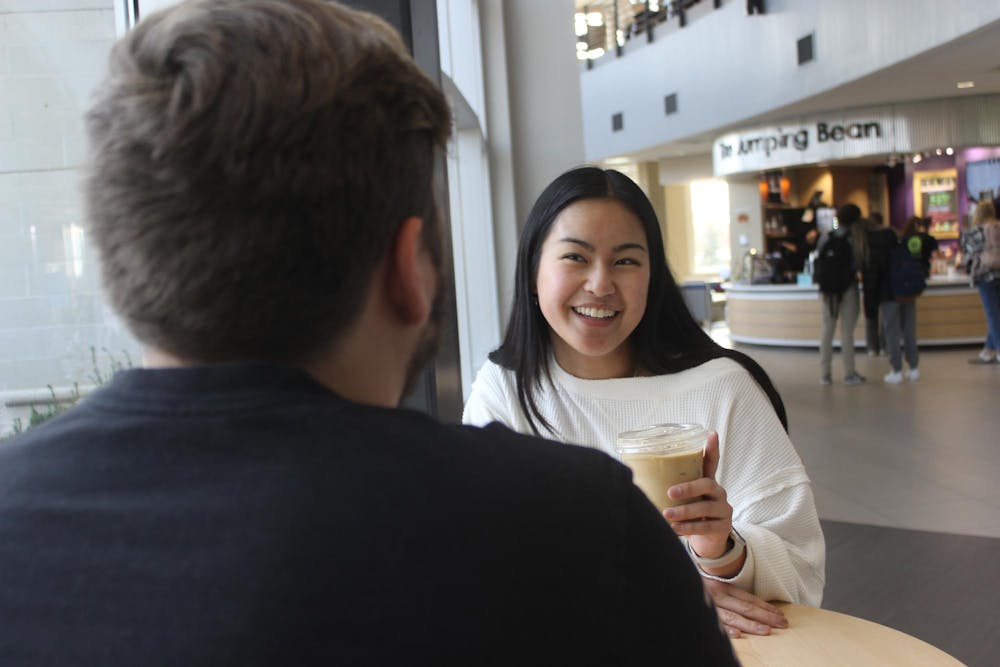As the second half of the fall semester begins and classes become more intense, students often look for drinks to help them power through the day.
There are many options, coffee being the most common. But what do people drink if they don’t like coffee? There are plenty of alternatives to coffee, some of which are healthier options.
One of the most popular options is tea. While there is caffeinated and decaffeinated tea, both serve as a good alternative to coffee.
“Half of it (the enjoyment) is because it’s warm and a flavored drink, so I can see how it can be a similar alternative,” senior Darin Jordan said.
Jordan grew up as a missionary kid in Asia and remembered drinking black tea at a young age.
It taught him a lot about how communities in other countries often drink tea together.
He said that he grew up going to people's houses and drinking tea that was often way too hot. Jordan normally drinks tea with sugar and sometimes with milk.
“I know that black tea, green tea and anything based on those has caffeine in it,” Jordan said.
For reference, a typical 8-ounce cup of coffee contains 80 to 100 mg of caffeine while an 8-ounce cup of green tea typically has 30 to 50 mg of caffeine. You can drink two cups of green tea to match one cup of coffee.
There are also numerous health benefits to drinking tea. In an article titled, “What Are The Health Benefits of Tea?”on PennMedicine.org, numerous studies showed that a variety of teas may boost your immune system.
“Green tea is exceptionally high in flavonoids that can help boost your heart health by lowering bad cholesterol and reducing blood clotting. Studies show this type of tea can also help lower blood pressure, triglycerides and total cholesterol,” according to Penn Medicine.
One specific tea Taylor's campus tends to gravitate to is chai. At the Jumping Bean, and at various coffee shops in the Upland area, many places sell chai lattes.
A chai latte is a mixture of tea and milk, any kind of milk will suffice but people have their preferences.
Senior Charis Negley works as a barista at the Jumping Bean, and she noticed that chai lattes are one of the most popular orders.
“The chais are good and a lot of people order them whether that is hot or iced,” Negley said. “They taste really good. We have spiced and vanilla, and more people order vanilla, but I think the spiced chai is better.”
Negley says the spiced chai tastes like Christmas to her.
Other good non-caffeinated options at the Jumping Bean are the smoothies. The ingredients are pretty simple: water, ice and puree. Negley recommended the wildberry smoothie.
Vitamin supplements are also good replacements for coffee. Most of them come in little packets that people pour into their water bottles.
Junior Tavin Reeves received a care package from his grandma his freshman year that contained one of these vitamin supplements, and he has been drinking them ever since.
Zipfizz Healthy Energy Drink is the name of the supplement Reeves has become accustomed to using, and now he drinks it in place of coffee in the morning.
“Zipfizz is basically a vitamin energy drink with zero sugar, B12 vitamins,” Reeves said. “It’s just electrolytes and multivitamins, so there's no sugar or anything.”
Reeves doesn’t drink it to give him energy. He drinks it because it has kept him healthy for the most part.
He believes that most people drink coffee or energy drinks because it is a routine. Reeves recommended replacing them with a healthier alternative like vitamins.
There are plenty of other drinks out there that can give people boosts of energy throughout the day. These are just a few of the ones students around campus have found confidence in.
Every person has their preference. Nothing is wrong with coffee, but it’s important to know what other options are available.





